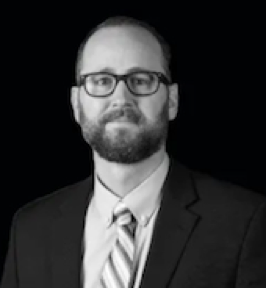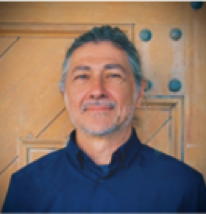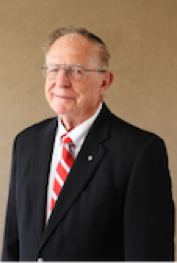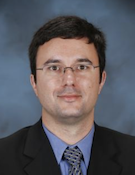Seminar Series
2026
Tuesday, March 3, 2026
Alkali Metal Heat Pipe Technology: Origins and Comparative Capabilities
Robert S. Reid, LANL
2:00 p.m., CEC Room 1026
Abstract: This lecture examines high temperature heat pipe technology, tracing its intellectual and scientific foundations from the era of the Enlightenment through to contemporary advanced applications. While heat pipes as practical engineered devices were first formally developed at Los Alamos National Laboratory during the 1960s as part of the burgeoning space age technological revolution, the fundamental thermodynamic and fluid mechanics principles underlying their operation can be traced to scientific discoveries and theoretical frameworks established centuries earlier. The conceptual groundwork laid by Enlightenment-era natural philosophers and subsequent generations of scientists in understanding phase change phenomena, capillary action, and thermal transport mechanisms created the essential knowledge base that would eventually enable the development of modern heat pipe technology.
Since their initial development, heat pipes have evolved from specialized aerospace components into ubiquitous thermal management devices that now appear across an extraordinarily diverse range of applications. Today, these elegant passive heat transfer devices can be found in commercial satellites maintaining precise thermal control in the harsh environment of space, in laptop computers where they efficiently dissipate heat from high-performance processors, and in large-scale industrial infrastructure such as the Trans-Alaska Pipeline System, where they serve critical functions in preventing permafrost degradation. This widespread adoption across vastly different scales and operating conditions testifies to the fundamental versatility and reliability of heat pipe technology. In recent years, there has been renewed and intensified interest in high temperature heat pipe applications, particularly within the nuclear energy sector.
Bio: Dr. Robert S. Reid has directed the heat pipe activity at Los Alamos since 1997. Over his 40-year career at Los Alamos and NASA he has developed techniques for passively extracting thermal power from high-temperature fast nuclear reactor cores for space and terrestrial nuclear power systems, including LANL SAFE-30, NASA SAFE-100a, Project Prometheus, the Jupiter Icy Moons Orbiter, Lunar Surface Power System, MegaPower Reactor, and Westinghouse eVinci. His work addresses materials and fabrication challenges associated with corrosion, compatibility, and life prediction in high-temperature alkali–refractory metal systems. He holds over a dozen patents in subject areas related to compact heat pipe reactors and thermoacoustic energy conversion devices.

Tuesday, February 17, 2026
Why Engineers Should Learn Policy and How the GNSPI Can Help
Phil Hultquist, Global and National Security Policy Institute (GNSPI), UNM
2:00 p.m., CEC Room 1026
Abstract: This short seminar will introduce and discuss some of the reasons why engineers should engage with the policy level, not just of the technology they design, but with the broader policy environment. The talk will apply these reasons to global and national security fields, with a focus on reasons why critical analysis of policy by nuclear engineers is important for society at large but also for the careers of the engineers. It will introduce the Global & National Security Policy Institute (GNSPI) at UNM, which serves as a source of policy-level education for critical and emerging technologies and as a bridge between the university and the security community in New Mexico. We will discuss GNSPI programs for students and collaboration opportunities for the Department of Nuclear Engineering.
Bio: Dr. Philip Hultquist is the Director of the Global and National Security Policy Institute and a Research Professor for the Department of Political Science at UNM. His research focuses on international relations, deterrence, and strategy with a specialty on India and the Indo-Pacific. His prior research has covered irregular warfare, state targeting and repression in counterinsurgencies, peace settlements in civil wars, state and social politics of hydroelectric dams in India, and countering violent extremists in the Khalistan insurgency in India. His work has appeared in World Development, Journal of Peace Research, PS: Political Science and Politics, Conflict Management and Peace Science, and the Journal of Punjab Studies. His current research focuses on two areas of US Indo-Pacific Strategy: the role of non-traditional partners like India and improving deterrence in the Taiwan Strait. He previously taught at the US Army’s School of Advanced Military Studies and at Roosevelt University in Chicago. He holds an MA and PhD in Political Science from the University of New Mexico.

Tuesday, February 3, 2026
AI in Nuclear Engineering
Manel Martínez-Ramon, Department of Electrical and Computer Engineering, UNM
2:00 p.m., CEC Room 1026
Abstract: Trustworthy AI may have in the future a high impact in nuclear engineering if we have the ability to use it not by replacing the physics based analysis, but rather complementing it by constructing tools able to add a data-driven layer. For the particular case of its use in nuclear reactors, that will be the paradigm chosen in this talk, monitoring, diagnostics, fault detection and prediction and decision support are tasks that can be enhanced by AI. In this presentation we will first summarize what is AI and what machine learning represents in it, to then dive into the main capabilities of AI that may be relevant to Nuclear Engineering, based on the concepts of perception, prediction and decision support. These AI capabilities can be used in nuclear engineering, and we will see a subset of high value applications in maintenance, monitoring, diagnostics, design, safety or security.
The application of AI in nuclear engineering is particularly hard, as it is a safety driven area, and the designer faces difficulties as unlikely events, sensor calibration, low data, need for measuring uncertainty and assess risk. We will review possible paths for credible AI systems in Nuclear Engineering that are aligned with the regulatory expectations. We will finish the talk with open research questions and a debate.
Bio: Dr. Manel Martínez-Ramón (Ph.D. in Telecommunications Technologies, Universidad Carlos III de Madrid, Spain, 1999) is a Professor in the Department of Electrical and Computer Engineering (ECE) at the University of New Mexico (UNM). He holds the King Felipe VI Endowed Chair, sponsored by the Household of the King of Spain. He joined the UNM ECE Department in 2013 as a Full Professor. His research focuses on applications of machine learning to smart antennas, smart grids, photovoltaics, particle accelerators, and related areas. He is a co-author of the books Digital Signal Processing with Kernels (IEEE Press/Wiley, 2018), Machine Learning Applications in Electromagnetics and Antenna Array Processing (Artech House, 2021), and Deep Learning: A Practical Introduction (Wiley, 2024).

Tuesday, January 27, 2026
A Small Modular Nuclear Reactor Design for Commercial Shipping Applications
Patrick McDaniel, Department of Nuclear Engineering, UNM
2:00 p.m., CEC Room 1026
Abstract: The speaker will present new nuclear reactor design suitable for powering the largest commercial ships operating today. He will provide a comparison with current diesel engines powering the same ships. The requirement for the design has been generated by an industry attempt to reduce greenhouse gas emission by commercial shipping. Though this is seen as an admirable goal by some, the interest does provide an opportunity for nuclear power to enter the commercial shipping industry. The typical power requirements correspond to moderate-sized SMRs and much of the technology under development can be adapted to this application. The design he will discuss is a high temperature gas cooled reactor with an intercooled-recuperated power conversion system.
Bio: Dr. McDaniel is a retired USAF Reserve officer, having spent 8 years as a pilot on active duty and 22 years as a nuclear engineering reserve officer for the Air Force Research Laboratory. He began his career after obtaining a degree in Engineering Science from the Air Force Academy in 1965. He then attended CalTech for one year to obtain a Master’s Degree in Mechanical Engineering, Nuclear Option. This prepared him well to understand the intricacies of The Big Bang Theory. After that he moved to Air Force Undergraduate Pilot training, subsequently flying, C-141, HH-43, H-1, and A-37 aircraft. He then returned to school and obtained a PhD in Nuclear Engineering from Purdue University in 1977. He was hired by Sandia as a nuclear engineer and worked on a variety of programs including as the lead engineer for Sandia’s participation in the Space Nuclear Thermal Propulsion program. He took a 10 year sabbatical from Sandia to serve as technical lead for AFRL’s Satellite Assessment Center. He returned to Sandia in 2002 to lead DARPA’s SIER and UER-X programs. During his career at Sandia and AFRL, Dr McDaniel has served as an Adjunct/Research Professor in the Nuclear Engineering Department at the University of New Mexico for over 35 years, teaching an average of one course per academic year system.
2025
Tuesday, October 28th, 2025
Experimental testing of reactor cavity cooling system for high-temperature gas-cooled reactors
Qiuping Lv, Argonne National Laboratory
2:00 p.m., Mechanical Engineering Building Room 218
Abstract: The Reactor Cavity Cooling System (RCCS) is one of the passive decay heat removal concepts that have been proposed for advanced nuclear reactors. Passive safety systems capable of keeping reactor components at safe temperatures under extreme conditions will be key to the success and acceptance of the next generation of nuclear reactors, including non-water cooled and small modular reactors. At Argonne National Laboratory, there has been extensive work on experimental testing of the RCCS utilizing a scaled test facility called Natural convection Shutdown heat removal Test Facility (NSTF). The NSTF program started with an air-based test facility that concluded testing in 2016 and was subsequently converted to the current water-based test facility. Since its commission in 2018, the water-based NSTF has generated NQA-1 licensing quality data for industry partners over a wide range of operating conditions, including normal operation conditions, transients, off-normal, and accident scenarios. In addition, intrinsic to such two-phase natural circulation systems are flow instabilities that have been studied through both single-phase and two-phase throttling tests. Experimental results from some selected tests will be shared in the talk.
Bio: Dr. Qiuping Lv is a nuclear engineer in the Nuclear Science and Engineering division at Argonne National Laboratory. He is currently the lead experimenter for the water-based Natural convection Shutdown heat removal Test Facility (NSTF) at Argonne. Dr. Lv has extensive experience in designing, modeling and testing of passive safety systems for advanced reactor applications, including HTGRs, SFRs, and FHRs. After joining Argonne in 2016, he has led and worked on various projects related to design and testing of compact heat exchangers for sodium, steam, and sCO2 applications, and high efficiency and low cost thermal energy systems. Dr. Lv received his Ph.D. and M.S. from the Ohio State University (2016), where his graduate research focused on design, testing and modeling of the Direct Reactor Auxiliary Cooling System (DRACS) for Fluoride-salt-cooled High-temperature Reactors (FHRs).

September 30
Overview of LANL Experimental and Modeling Portfolios Focused on Fusion Fuel Cycle Core Unit Operations
Victoria Hypes-Mayfield, Los Alamos National Laboratory
2:00 p.m., Mechanical Engineering Building Room 218
Zoom: https://unm.zoom.us/j/95290856939
Meeting ID: 952 9085 6939
Passcode: NE_501 (need to sign in to Zoom)
Abstract: Los Alamos National Laboratory has been deeply involved in fusion fuel cycle research since the early days of the ITER project, the first-of-its-kind international collaboration to develop a working fusion reactor. Beginning in the 1980s, the Tritium Systems Test Assembly (TSTA) at LANL served as a foundational test bed for fusion fuel cycle technologies, leading to the development of operational methods and systems that remain cutting-edge today. The LANL Fusion Fuel Cycle Team, which originated from the TSTA effort, contributed key preliminary designs for the tokamak exhaust processing system and provided critical data on tritium storage technologies as part of the U.S. contribution to ITER. Today, the team’s work spans both experimental and modeling portfolios focused on core unit operations within the fusion fuel cycle. At the Hydrogen Processing Laboratory, researchers continue to advance hydrogen separation, storage science, and component-level engineering models. This work directly supports the design and development of full fuel cycle systems for U.S. fusion energy efforts and strengthens national capabilities available to public institutions and private companies alike. These efforts play a vital role in advancing sustainable energy solutions that align with national goals for security, equity, and long-term resilience.
Bio: Victoria Hypes-Mayfield graduated with her Bachelor’s degree in Chemical Engineering with a minor in Chemistry from New Mexico Institute of Mining and Technology in 2019. She joined the lab in 2018 as a chemical engineer, becoming a member of the research team working on the fusion energy fuel cycle. Victoria contributes to both experimental and modeling aspects of fuel cycle design and extended her expertise in tritium handling topics. She has several active collaborations with both public and private institutions using LANL’s Hydrogen Processing Laboratory to support a portfolio of projects for the advancement of Fusion Energy.

September 9
Liquid Lead Suspended Fuel Subcritical Fission Blanket for Nuclear Waste Transmutation
Taek K. Kim, Argonne National Laboratory
2:00 p.m., Mechanical Engineering Building Room 218
Zoom: https://unm.zoom.us/j/95290856939
Meeting ID: 952 9085 6939
Passcode: NE_501 (need to sign in to Zoom)
Abstract: A transformational transmutation technology is proposed to the ARPA-E Newton program for transmuting the entire U.S. minor actinides (MAs) stockpile and selected intermediate- and long-lived fission products (FPs). The transmutation system consists of a proton accelerator, a subcritical fission blanket containing liquid lead and nanometersized suspended MA transmutation targets, and an innovative separation system based on centrifugal force. The fission blanket system utilizes a liquid-lead-based nanofluid as a carrier for the transmutation targets, a coolant for heat transfer, and a spallation target. The lead-based nanofluid can substantially simplify spallation target design and enhance material resilience against frequent beam trips and temperature variations. The MA transmutation targets are irradiated in the form of nanometer-sized particles, aiming at homogenous suspension in the liquid lead, improvement of heat transfer capability, and emission of FPs from transmutation targets due to their recoil distance longer than the nanoparticle size. An innovative online separation technology is proposed to separate nanoparticles and FPs suspended in the liquid lead. Gaseous FPs bubble out, and other FPs in liquid lead are separated using a centrifugal force-based separation system such as a centrifugal contactor or centrifuge. The proposed transmutation technologies will be demonstrated through numerical simulations and experiments utilizing the nanoparticle manufacture and irradiation capabilities of national labs and universities.
Bio: Dr. Taek K. Kim is a Senior Nuclear Engineer, the Manager of the Nuclear Systems Analysis Department, Nuclear and Science Engineering Division at Argonne National Laboratory, and the National Technical Director of the Systems Analysis and Integration (SA&I) Campaign of the Office of Nuclear Energy, Department of Energy. He got a PhD in Nuclear Engineering from Seoul National University in 1995 and joined Argonne in 2001. At Argonne, he is responsible for providing technical leadership and programmatic guidance on various activities, including nuclear fuel cycle performance analysis, reactor physics, modeling and simulation of advanced reactor cores, and development of advanced reactor and transmutation concepts. In addition, Dr. Kim is leading the DOE-NE’s SA&I Campaign, which is the multi-national labs R&D program to develop strategies to improve the economic, technical, and social sustainability of nuclear energy.

April 15
Monte Carlo Neutron Transport on Exascale Computers
Steven Hamilton, Oak Ridge National Laboratory
2:00 p.m., Student Lounge inside Farris Engineering Center
Room 1026, Centennial Engineering Center
Zoom: https://unm.zoom.us/j/91510871864
Meeting ID: 915 1087 1864
Passcode: NE_501 (need to sign in to Zoom)
Abstract: The world's largest supercomputers have become increasingly focused on GPU-based computing architectures. This trend is driven by both the higher energy efficiency of GPUs relative to CPU platforms and the growing interest in applications of artificial intelligence. Researchers wishing to leverage high performance computing platforms for challenging problems must adapt their codes to the unique GPU programming paradigm. This talk presents an overview of the process of porting ORNL's Shift Monte Carlo radiation transport solver to execute efficiently GPUs as part of the DOE Exascale Computing Project. Several of the unique challenges encountered in the porting process will be highlighted. A central theme is that strategies known to be efficient on traditional CPU architectures may encounter unexpected challenges when running on GPUs. A few areas requiring particular algorithmic advances include continuous-energy nuclear data, isotopic depletion, flexible computational geometry, and multiphysics coupling. Simulation results on both Nvidia and AMD GPUs will be presented, including a series of multiphysics calculations on ORNL's Frontier supercomputer that was named a finalist for the 2023 ACM Gordon Bell Prize.
Bio: Steven Hamilton is a Senior R&D staff member in the HPC Methods for Nuclear Applications Group at Oak Ridge National Laboratory. He received BS and MS degrees in Nuclear Engineering from Georgia Tech and a PhD in Computational Mathematics from Emory University. He is a developer on both the Shift Monte Carlo radiation transport code and the Denovo deterministic transport solver, both part of ORNL's SCALE nuclear analysis suite. His research interests are in porting and optimizing scientific software for high performance computing platforms as well as the development of linear and nonlinear solvers for radiation transport and fluid flow problems.
